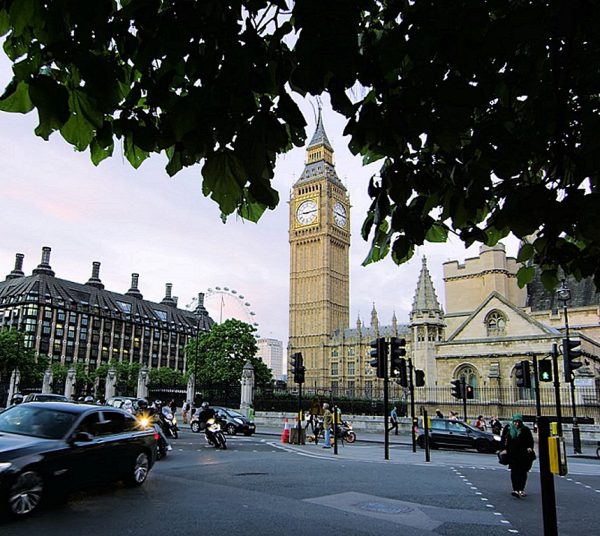Broadband ISPs and Mobile Operators Agree UK Cost-of-Living Plan

The UK Government has today confirmed that the country’s biggest broadband and mobile providers have agreed to a raft of “new commitments“, which are designed to help people who may be struggling with the cost-of-living. But many of the pledges sound like those we’ve seen before, during the pandemic.
Last week, we reported that the bosses of Ofcom, BT, Vodafone, Virgin Media / O2 (VMO2), Three UK, TalkTalk, Sky Broadband, Hyperoptic, CommunityFibre, G.Network, Openreach, Shell Energy, CityFibre, Gigaclear, INCA, KCOM, ISPA and Mobile UK had all agreed to meet at Downing Street today in order to discuss the current challenges.
The confirmation came after most of the major operators imposed annual price hikes of up to around 10% on their customers, although in fairness, such operators are not immune to the rising costs and do have to pass that on at some point. On the flip side, some providers have bucked that trend and opted to keep their prices frozen (Gigaclear, Truespeed, KCOM, Giganet, giffgaff, FibreNest, Fibrus etc.).
Advertisement
Nevertheless, the Government are currently quite keen to be seen as doing something about the cost-of-living crisis, which often means leaning on the industry to extract more concessions. The good news is that bosses representing the vast majority of the UK telecoms market – including BT, Openreach, Virgin Media O2, Vodafone, Three UK, TalkTalk and Sky – have today signed up to a series of new pledges.
The commitments, which take effect immediately, are:
➤ All providers commit to supporting their customers who may be struggling with the cost-of-living and to treat them with compassion, understanding and as individuals.
➤ All providers commit to supporting customers struggling with their bills and to offer ways to keep them connected, such as allowing them to move to cheaper packages without charge or penalty, or agreeing manageable payment plans.
➤ All operators commit to continue to protect the connectivity of their customers known to be vulnerable as a priority.
➤ Providers – supported by Government – commit to take steps to raise awareness of low cost products to those claiming Universal Credit.
➤ Mobile providers commit to considering more ways to help their customers, including exploring tariffs, options to improve existing low cost offers, and increasing promotion of existing deals.
The main problem here is that none of this seems particularly new, with most of those same providers already saying they were doing much or all of this. A lot of these commitments are also quite vague and echo Ofcom’s own Fairness for Customers commitments from 2019, as well as their related Fairness Framework (PDF).
For example, saying providers have committed to “take steps to raise awareness of low cost products to those claiming Universal Credit” (e.g. social tariffs) is all well and good, but associated providers already say that and yet it can still be difficult to find the products. This is unlikely to change unless social tariffs are required to be displayed directly alongside primary packages and during availability checks, as opposed to being hidden away on obscure sub-pages or menu items.
According to Ofcom’s most recent Affordability Report, some 1.1 million households (5% of the UK) are “struggling to afford their home broadband service” and so could stand to benefit from such tariffs. However, out of an estimated 4.2 million households in receipt of Universal Credit, just 55,000 homes have so far taken such a package (1.2% of those eligible).
Advertisement
Digital Secretary, Nadine Dorries, said:
“Families across the country face increased anxiety about keeping up with bills, so today I agreed with broadband and mobile industry bosses what more can be done to support people during this difficult time.
I’m pleased to report the industry is listening and has signed up to new commitments offering customers struggling with the cost of living help to stay connected. Those who need support should contact their supplier to see what is available.”
Andrew Glover, Chair of the ISPA, said:
“The telecoms sector knows that people are facing real challenges with the cost-of-living crisis. Our members are determined to do what they can to help their customers through this period and, together with government, we will work to raise greater awareness of the support available.
These commitments, along with the social tariffs that are available from many members, will hopefully help people in need at this challenging time. We encourage customers who are struggling with their bills to reach out to their broadband provider to get help.”
Chief Executive at Mobile UK, Hamish MacLeod, said:
“Mobile operators welcome the commitments agreed upon today with the Secretary of State for Digital, Culture, Media, and Sport, which build on offers already in place to help the most vulnerable. We welcomed the chance to discuss with the Government not only how to raise awareness of such schemes, but also to set out the further steps being taken to support those struggling with their bills.”
The government itself made no commitments of its own today, with some people calling for VAT on broadband to be cut or for a subsidy to support even cheaper social tariffs. Instead, there was merely a reiteration of the work they’ve been doing to help Ofcom nudge more mobile operators and broadband ISPs into offering social tariffs.
Ofcom has maintained the threat of mandatory regulated social tariffs if ISPs fail to adapt. But the main problem right now still seems to be a lack of awareness around such tariffs, with plenty of providers already offering them – including BT (Home Essentials), Virgin Media (Essential Broadband), Hyperoptic (Fair Fibre Plans), KCOM (Flex), G.Network (Essential Fibre), VOXI (For Now), Sky Broadband and NOW TV (here) and more.
However, it’s worth pointing out that the competitive market means it’s often possible for most people to switch to a different provider or package and save money, even without being eligible for a social tariff.
Likewise, the value we all get back from broadband and mobile services has increased over previous years, which means you can often get bigger mobile data allowances or faster fixed line speeds for less money today than before – the latter is admittedly dependent upon how much network competition exists in your area (experiences do vary).
Advertisement
So if money is a problem and your provider puts its prices up, then don’t be afraid to vote with your feet and leave, or try to renegotiate (Retention Tips).
Furthermore, the price we all pay for communication services is largely dwarfed by the colossal hikes in energy (i.e. gas, electricity and – to a lesser extent – water), petrol and other bills. If people are struggling to afford even a fairly basic broadband or mobile package, then they’ve probably got much more serious concerns when it comes to other areas, such as heating their homes in winter, getting to work or buying food to live.
Lest we forget that broadband and mobile are also extremely important services that can help you to save money and solve other problems (shopping, insurance, finding jobs etc.), thus it could easily be argued that such services more than pay for themselves in respect to the value they return.
Mark is a professional technology writer, IT consultant and computer engineer from Dorset (England), he also founded ISPreview in 1999 and enjoys analysing the latest telecoms and broadband developments. Find me on X (Twitter), Mastodon, Facebook, BlueSky, Threads.net and Linkedin.
« Q1 2022 Progress Update on BT FTTP Broadband Rollout in Wales





















































Above-CPI price increases, on a product which forms part of CPI, will drive spiralling inflation. While the policy of above-inflation price increases as part of “fixed” contracts remains, anything the providers say is just hollow talk.
Exactly correct.. I do believe the majority of people do not understand basic economics.. if something which comprises the basket of goods total value, increases in value/cost then their is a weighted effect that said item has on the total value of that same basket of goods/services. If then, we find ourselves in a situation where we use that same basket of goods as a index used to charge for the same goods and services it acts as a feedback loop, in this case rate of inflation.
Fixed contracts should be fixed.
Government is going mental about workers demanding payrises *near* inflation while these companies for years have put their prices up by 3.9% above inflation every year like clockwork.
This need to be stopped
It’s going to be interesting next year. Are mobile networks going to put up bills by 13-15%, if inflation is at 11%? That feels unpalatable to most consumers. There could be a backlash.
@rich, Precisely, when workers need a payrise to keep pace with inflation this is meet usually (almost always) with backlack or obstruction from government down to company exec’s. Whilst in turn, most companies increase prices annually..
@christopher Agreed.. There *SHOULD* be a backlash. For far too long now we have been on the recieving end of the beating stick. We keep taking this kind of stuff and all things considered we do not create much of a fuss about it.. Maybe a couple of stern words from politician about tackiling the cost of living or excess company profits are said now and then. As for the majority they are silent and until they speak up then we will continue to get beaten by that same old stick.